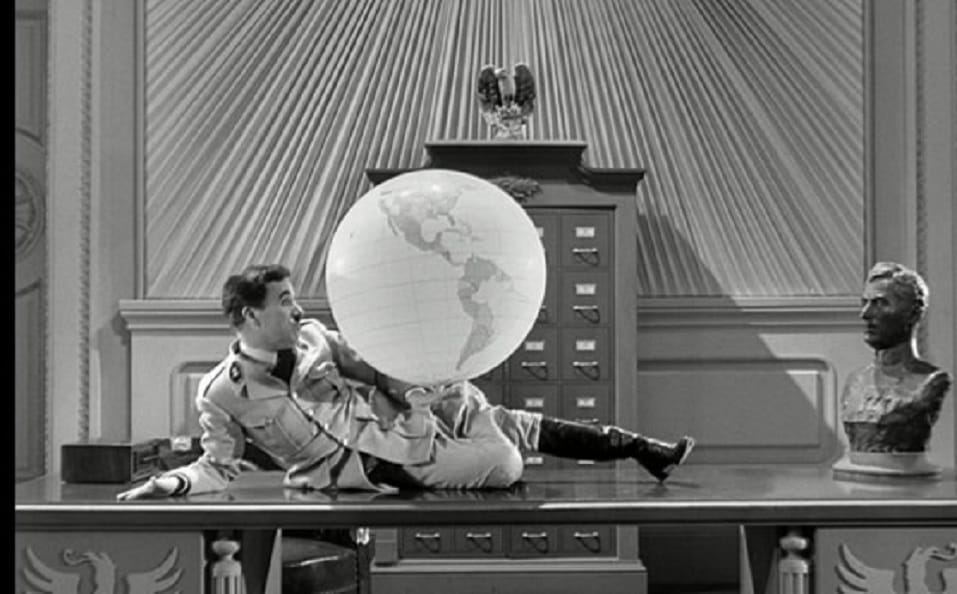A Risky Choice During a Precarious Era
When Charlie Chaplin began writing The Great Dictator in 1938, the United States had not yet entered World War II and still maintained diplomatic and commercial ties with Nazi Germany. Major Hollywood studios were reluctant to support the project, prompting Chaplin to finance the film himself.
Using his striking resemblance to Adolf Hitler, Chaplin portrayed a satirical version of the dictator named Adenoid Hynkel. Beyond appearances, both men shared uncanny similarities: they were born in the same month and year and rose from poverty to global fame—one through entertainment and the other through power.
A Humanitarian Message Amid Global Turmoil
In addition to playing Hynkel, Chaplin portrayed a humble Jewish barber who is mistaken for the dictator. The film culminates in a moving speech calling for kindness, empathy, and unity among all people. It was the first time Chaplin’s voice was heard on screen, delivering words that remain timeless:
“I don’t want to rule or conquer anyone. I should like to help everyone if possible. More than machinery, we need humanity. More than cleverness, we need kindness and gentleness.”
Impact, Controversy, and Lasting Influence
While some critics dismissed the film’s closing monologue as overly sentimental, The Great Dictator became a landmark in cinematic history. The film also drew criticism from conservative figures in Washington who accused Chaplin of political sympathies, leading to years of government scrutiny.
Chaplin later stated that he would not have made the film had he known the full extent of Nazi atrocities. Nevertheless, 85 years after its release, The Great Dictator endures as a testament to how art can confront oppression and advocate for humanity through courage and satire.







